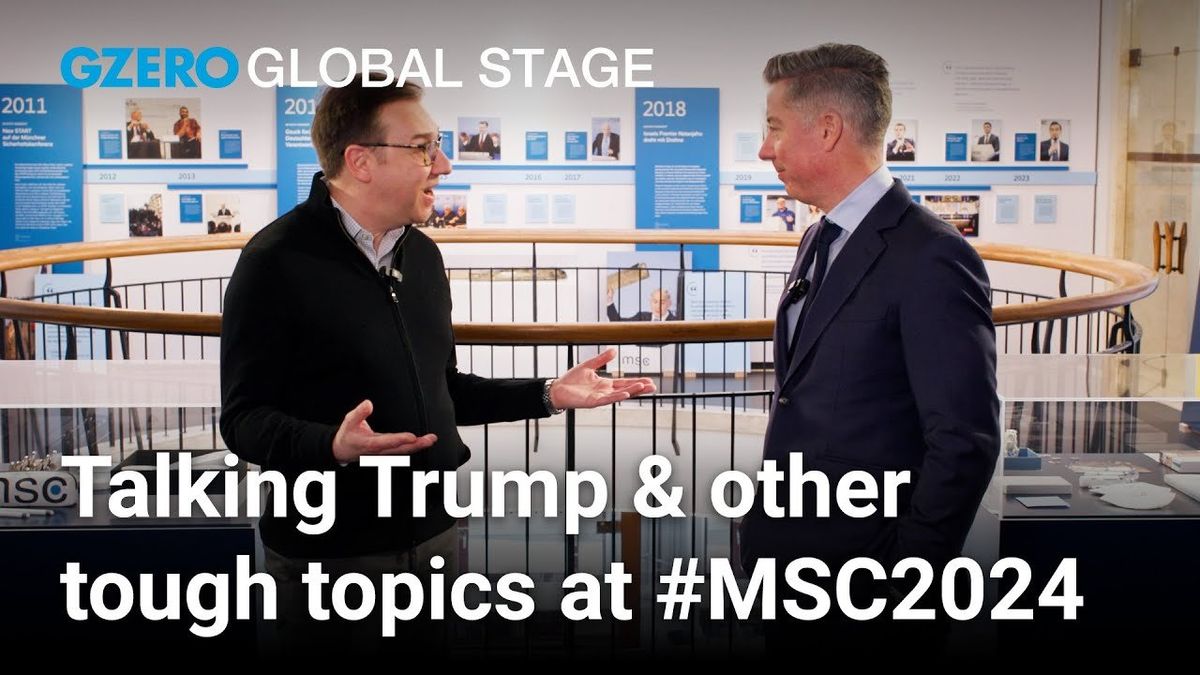At the Munich Security Conference, Trump isn't the only elephant in the room
The Munich Security Conference (MSC) is all about providing a space to address the elephant in the room and fostering discussion on that one big topic people would rather avoid, says Benedikt Franke, the forum’s vice-chairman and CEO. But there’s more than just one elephant this year — a herd.
GZERO’s Tony Maciulis spoke with Franke in the lead-up to the conference about the various “elephants” on the agenda: The war in Gaza, Donald Trump, AI, and the war in Ukraine, to name a few.
They also delve into how the conference has always been defined by turning points for the world, recounting times when the forum collided with major historical moments — or made history itself. The 2024 MSC comes amid a year in which a record number of voters will head to the polls in dozens of critical elections across the globe when many people feel increasingly pessimistic about the future.
Franke says the conference hopes to answer the question of how to inject some optimism back into discourse on the world’s problems. “We don't want this to be a doom and gloom conference, we want to do everything we can to look for the silver lining at the horizon, for the low-hanging fruits, and there are many,” he says.

















